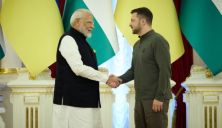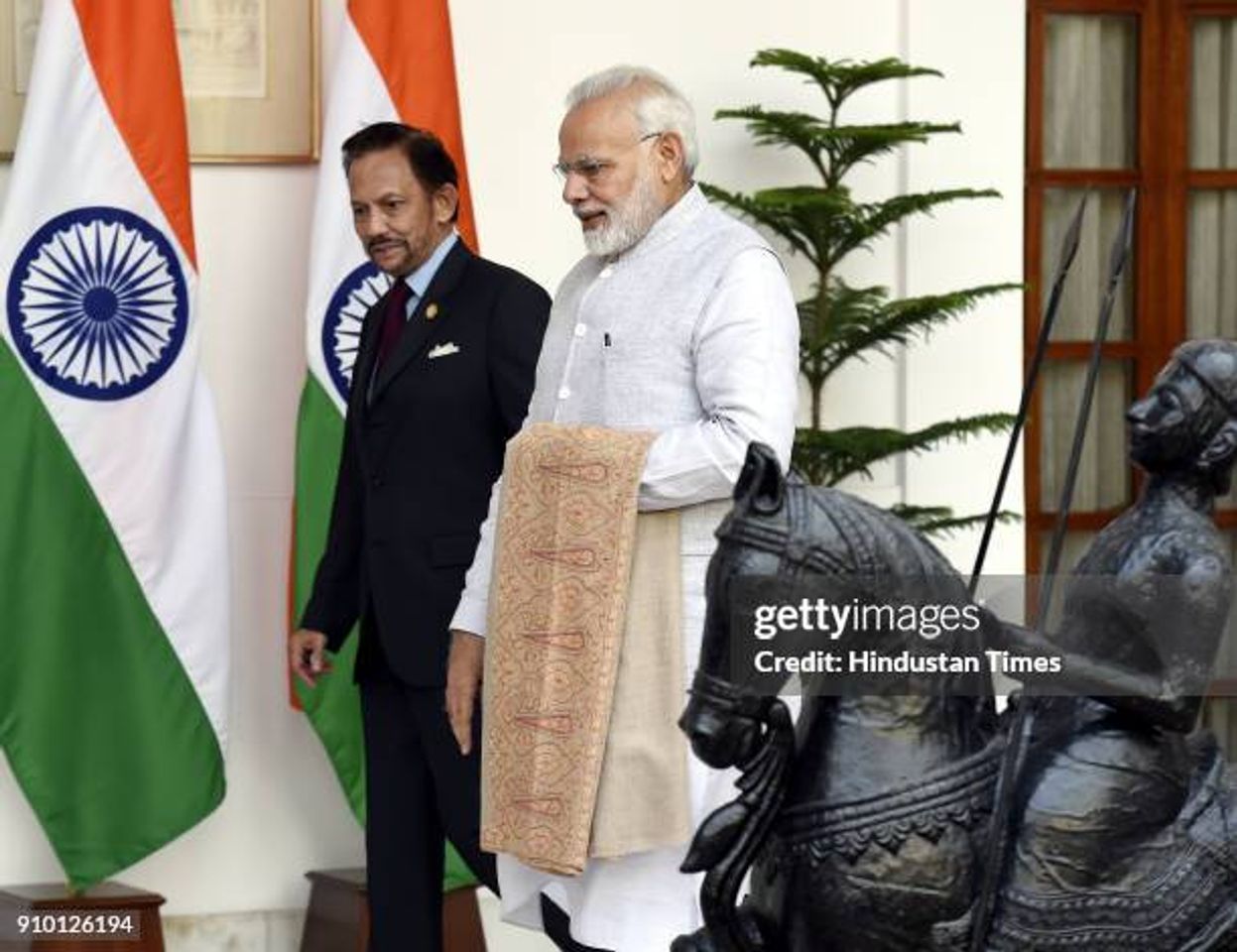Introduction In a significant diplomatic move, Russian President Vladimir Putin has put forward a proposal to address the protracted conflict in...
Vous n'êtes pas connecté
- English
- Français
- عربي
- Español
- Deutsch
- Português
- русский язык
- Català
- Italiano
- Nederlands, Vlaams
- Norsk
- فارسی
- বাংলা
- اردو
- Azərbaycan dili
- Bahasa Indonesia
- Հայերեն
- Ελληνικά
- Bosanski jezik
- українська мова
- Íslenska
- Türkmen, Түркмен
- Türkçe
- Shqip
- Eesti keel
- magyar
- Қазақ тілі
- Kalaallisut ; kalaallit oqaasii
- Lietuvių kalba
- Latviešu valoda
- македонски јазик
- Монгол
- Bahasa Melayu ; بهاس ملايو
- ဗမာစာ
- Slovenščina
- тоҷикӣ ; toğikī ; تاجیکی
- ไทย
- O'zbek ; Ўзбек ; أۇزبېك
- Tiếng Việt
- ភាសាខ្មែរ
- རྫོང་ཁ
- Soomaaliga ; af Soomaali
Rubriques :
 Maroc - EURASIAREVIEW.COM - A la une - 18/Jul 15:59
Maroc - EURASIAREVIEW.COM - A la une - 18/Jul 15:59
Testing US Strategic Patience With India – OpEd
The recent visit of Indian Prime Minister Narendra Modi to Russia has sparked a wave of concern in the United States, highlighting the fragile and sometimes inconsistent nature of India’s strategic alignments. U.S. Ambassador to India, Eric Garcetti, speaking at a conclave on India-U.S. defense relations, expressed that the outcomes of Modi’s Moscow trip were less substantive than expected and underscored the necessity of deepening bilateral ties beyond the current state of complacency. This scenario brings to the fore a critical evaluation of India's reliability as an ally, particularly in the context of global conflicts and geopolitical dynamics. India's Ambiguous Stance on Russia India’s decision not to openly criticize Russia’s actions in Ukraine has been a contentious issue. Western nations, especially the United States, have been advocating for a unified response against Moscow’s aggression. However, India’s reluctance to take a firm stance, particularly following the missile attack on a children’s hospital in Kyiv, where Modi’s remarks fell short of condemning Russia, signals an unreliable allyship. This ambiguity in India's foreign policy raises questions about its commitment to shared democratic values and international peace. Diplomatic Rhetoric vs. Concrete Actions Garcetti’s remarks highlight a critical gap between diplomatic rhetoric and concrete actions. While India publicly endorses peace and stability, its strategic decisions sometimes suggest otherwise. The U.S. ambassador emphasized the need for aligned actions, stating, “…we must not just stand for peace, we must take concrete actions to make sure those who don’t play by peaceful rules, that their war machines cannot continue unabated.” This call for tangible measures underscores the necessity for India to reassess its geopolitical alignments and prioritize partnerships that foster shared security interests and democratic values. The Fragility of the India-U.S. Relationship Despite the expansion of India-U.S. relations, the bond remains insufficiently deep, as highlighted by Garcetti. The relationship, though strong on the surface, is fraught with underlying tensions and inconsistencies. Bipartisan consensus in Washington underscores the importance of this alliance, yet acknowledges its fragility. India’s unpredictable foreign policy decisions, particularly its engagement with Russia, often strain this partnership, calling into question India’s reliability as a steadfast ally in times of global crises. Geopolitical Alignments and Strategic Partnerships India’s geopolitical alignments often reflect a balancing act between major global powers, aiming to maintain autonomy and strategic leverage. However, this balancing act sometimes results in perceived unreliability. The recent Modi-Putin discussions, devoid of explicit condemnation of Russia’s actions, exemplify this precarious stance. For the U.S., which values clear and decisive partnerships, such ambiguity can be disconcerting. Garcetti’s emphasis on strategic partnerships that prioritize shared values and security interests is a reminder for India to reassess its foreign policy priorities. Civil Rights and Democratic Values India’s stance on international issues, particularly civil rights, also raises concerns. The global community, especially the West, scrutinizes India’s approach to civil rights and its alignment with democratic values. Garcetti’s acknowledgment of American doubts about India’s actions emphasizes the need for India to align its domestic policies with its international commitments. For India to be seen as a reliable ally, it must address these concerns and demonstrate a consistent commitment to democratic principles and human rights. To move forward, both India and the U.S. need to work towards deepening their bilateral ties. This involves more than just diplomatic engagements; it requires building trust through consistent actions and shared commitments. India must recognize the importance of aligning its strategic decisions with its declared values and the expectations of its allies. The U.S., on its part, should continue to engage India constructively, addressing concerns and fostering a partnership based on mutual respect and shared goals. The current geopolitical landscape necessitates reliable and consistent alliances. India’s position as a global player is significant, yet its actions often reflect an unreliable allyship. The call from the U.S. to deepen bilateral ties and align actions with diplomatic rhetoric is not just a critique but a necessary step towards a more stable and predictable partnership. For India, this means reassessing its strategic alignments, prioritizing shared values, and demonstrating a commitment to international peace and security. Only through such measures can India and the U.S. forge a truly reliable and robust alliance.
Articles similaires
Bangladesh Redefining Foreign Policy: A Strategic Shift Towards Sovereignty? – OpEd
In recent years, Bangladesh has shown a growing inclination to reduce Indian influence within its borders, signaling a significant shift in its...
INS Arighaat: Key Facts About India’s 2nd Nuclear Ballistic Submarine
The strategic landscape of naval warfare has undergone a remarkable transformation over the past few decades, with nations increasingly focusing on...
Southeast Asia In A Multipolar World: Navigating Challenges And Opportunities – Analysis
Southeast Asia finds itself at a pivotal moment as the global power structure shifts from unipolarity to multipolarity, driven by China’s rise,...
Modi’s Uplifting Hugs Form Beautiful Connections In World Diplomacy – OpEd
By Anurag Punetha In the realm of international diplomacy, where every gesture is scrutinized and every word weighed, Indian Prime Minister...
Chinese Premier Visit To Pakistan: A Milestone For Strengthening Bilateral Ties – OpEd
Chinese Premier Li Qiang is scheduled to visit Pakistan next, marking a significant moment in the history of Sino-Pak relations, as this will be the...
India’s Neutral Moves in Geopolitics will End. Interview with Oleksandr Sushko
Indian Prime Minister Narendra Modi discussed the situation in Ukraine by phone with the President of the United States, Joe Biden. He also had a...
Indonesia’s Strategic Engagement With The Pacific In 2024: Leveraging MSG And PIF For Regional Stability – Analysis
Considering the evolving geopolitical landscape in Southeast Asia and the Pacific, Indonesia finds itself in a crucial position in 2024. As a...
PM Modi Meets Brunei Sultan at Luxury Palace: Key Highlights
In a significant diplomatic engagement, Indian Prime Minister Narendra Modi met with Sultan Hassanal Bolkiah of Brunei at the opulent Istana Nurul...
Strategic Implications Of Chinese Military Presence At Cambodia’s Ream Naval Base: A Regional Security Analysis
In August 2024, the arrival of a Chinese warship at Cambodia's Ream Naval Base sparked significant geopolitical concerns in Southeast Asia. This...
Les derniers communiqués
-
Adobe Brings Conversational AI to Trillions of PDFs with the New AI Assistant in Reader and Acrobat
Adobe - 21/02/2024
-
Laura Frigenti takes the Helm as Chief Executive Officer of the Global Partnership for Education
Global Partnership for Education - 05/12/2022


